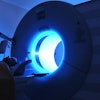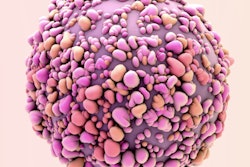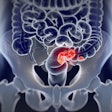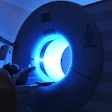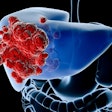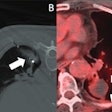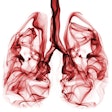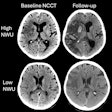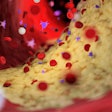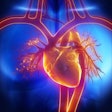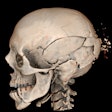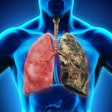
Clinicians used CT scans of coronary artery calcium (CAC) to predict which patients undergoing treatment for breast cancer were at a greater risk of developing cardiovascular disease (CVD), according to study findings presented on October 2 at the 2020 European Breast Cancer Conference (EBCC).
Neoadjuvant breast cancer treatments, including anticancer medications and left-side radiotherapy, have been linked to an increased risk of cardiovascular disease for women with breast cancer. The team behind the research hypothesized that artificial intelligence could help identify women at a higher risk of poor CVD outcomes even before they started therapy.
The research presented at EBCC 2020 proved that hypothesis correct -- women with high coronary artery calcium at the outset of treatment had a higher risk of later hospitalization or death from CVD.
The groundbreaking research is likely the first of its kind, according to presenter Prof. Dr. Helena Verkooijen, the study's senior author and a professor of image-guided treatment evaluation at the University Medical Utecht in the Netherlands.
"We've shown that we can use routine CT scans to indicate which breast cancer patients are most likely to develop cardiovascular disease," stated Verkooijen in a press release.
The multicenter study included data from 14,002 patients who underwent radiation therapy for breast cancer between 2005 and 2016. Verkooijen and colleagues used a deep-learning algorithm to retroactively calculate CAC scores from the women's CT planning scans.
The CAC scores were divided into five categories, with higher scores denoting more calcification, a strong CVD risk factor because calcification narrows or blocks blood vessels. The authors followed patient outcomes for an average of four years and four months.
The CAC scores automatically detected from the CT planning scan were strongly associated with CVD risk. Verkooijen said this is likely because newer and more effective breast cancer treatments are known to impact CVD risk.
"Treatments have side effects and some treatments -- such as radiotherapy and certain types of cancer drug -- can increase the risk of cardiovascular disease," she stated.
| CAC score and risk of cardiovascular disease among women treated for breast cancer | |||||
| Outcome | CAC score | ||||
| 0 | 1-10 | 11-100 | 101-400 | 400+ | |
| Percentage of patients hospitalized or died | 5% | 8.9% | 13.5% | 17.5% | 28.3% |
| Hazard ratio (adjusted for age, year) | 1.0 | 1.3 | 1.7 | 2.2 | 3.6 |
In addition, patients with higher CAC scores on their CT planning scan were more likely to experience hospitalization or even death from CVD after breast cancer treatment. For patients with no calcifications, 5% were eventually hospitalized or died from CVD, but that percentage jumped to 28.3% for women with more than 400 calcifications.
The results were similar when the authors calculated hazard ratios. Even after adjusting for age and calendar year of the CT scan, patients with more than 400 calcifications had more than 3.5 times the risk of CVD-related hospitalization or death than patients with no calcifications.
This risk was even greater for patients treated with both radiotherapy and anthracycline chemotherapy drugs. For these patients, a high CAC score put them at 5.4 times the risk of hospitalization or death from CVD.
The next step for Verkooijen and her team is to find out how clinicians can mitigate the risk of poor CVD outcomes for women undergoing treatment for breast cancer. The team is already conducting a follow-up study that pairs high-risk patients with less cardiotoxic breast cancer treatments and preventive interventions.
"In my opinion, treating breast cancer means finding the right balance between maximizing chances of tackling the tumor, while minimizing the risks of side effects, including the risk of cardiovascular disease," Verkooijen stated.



